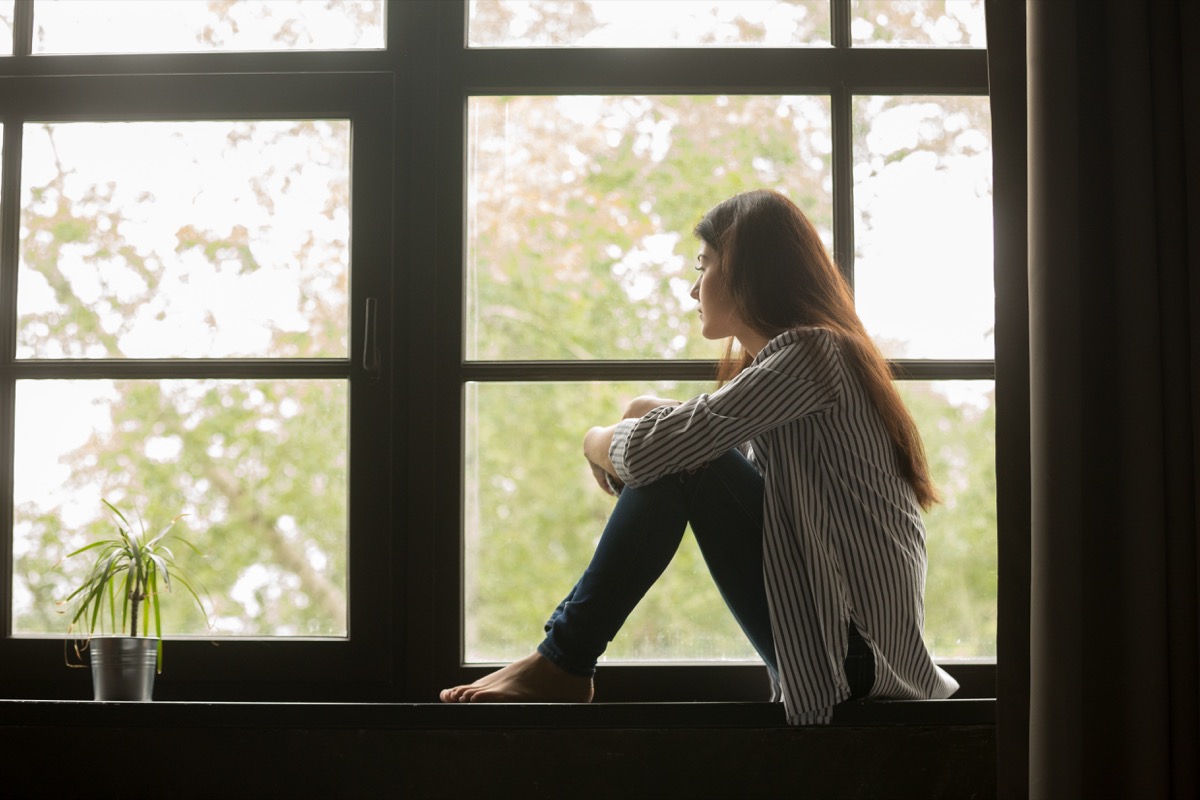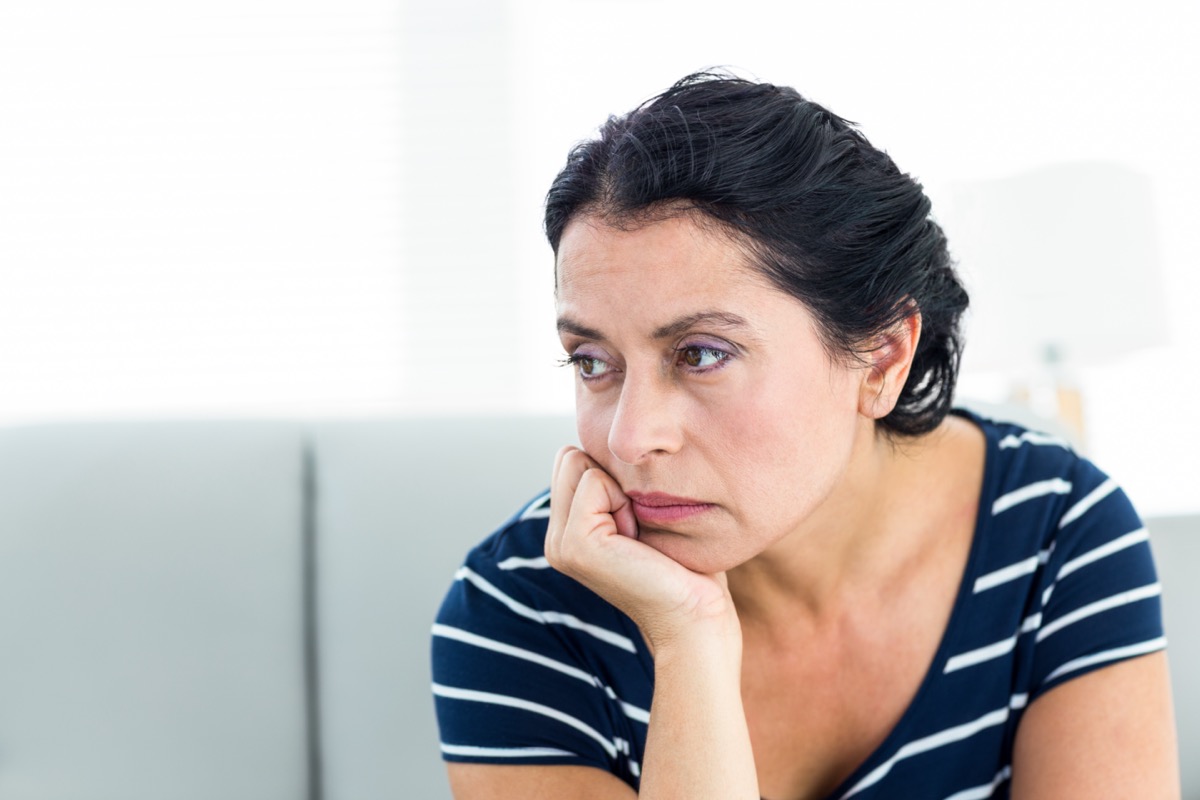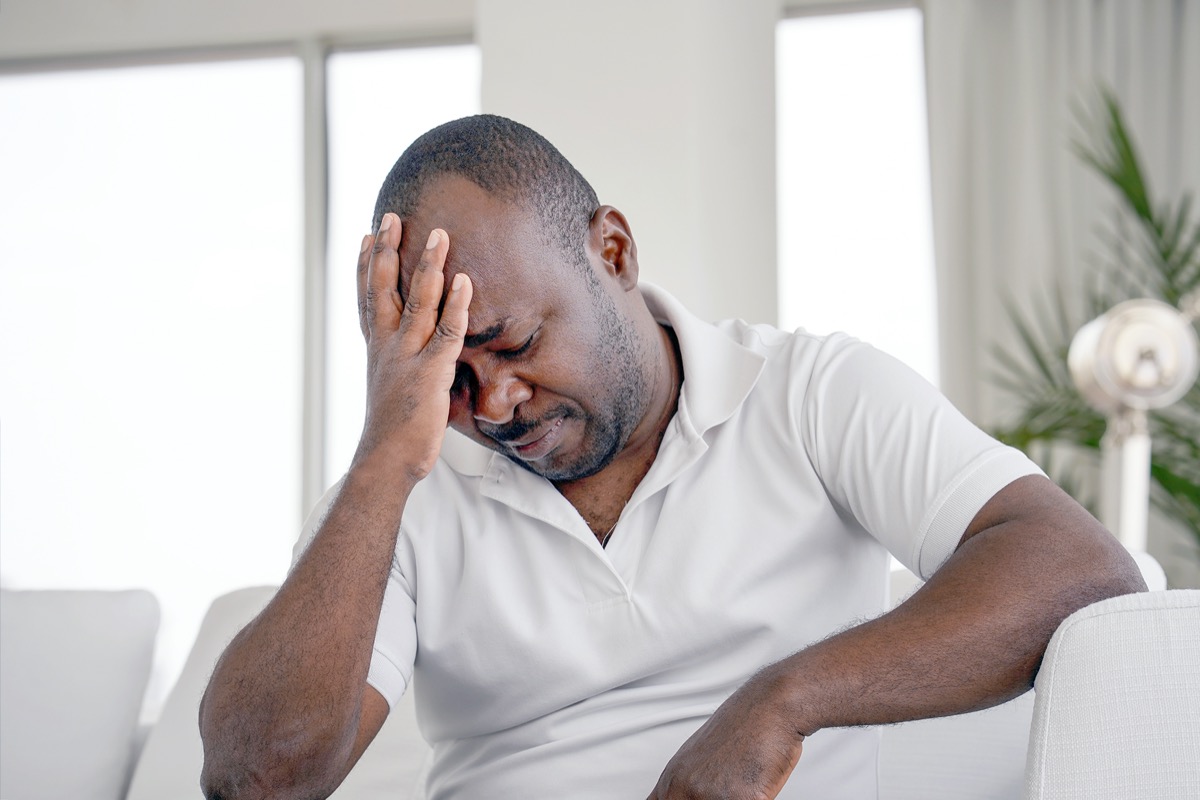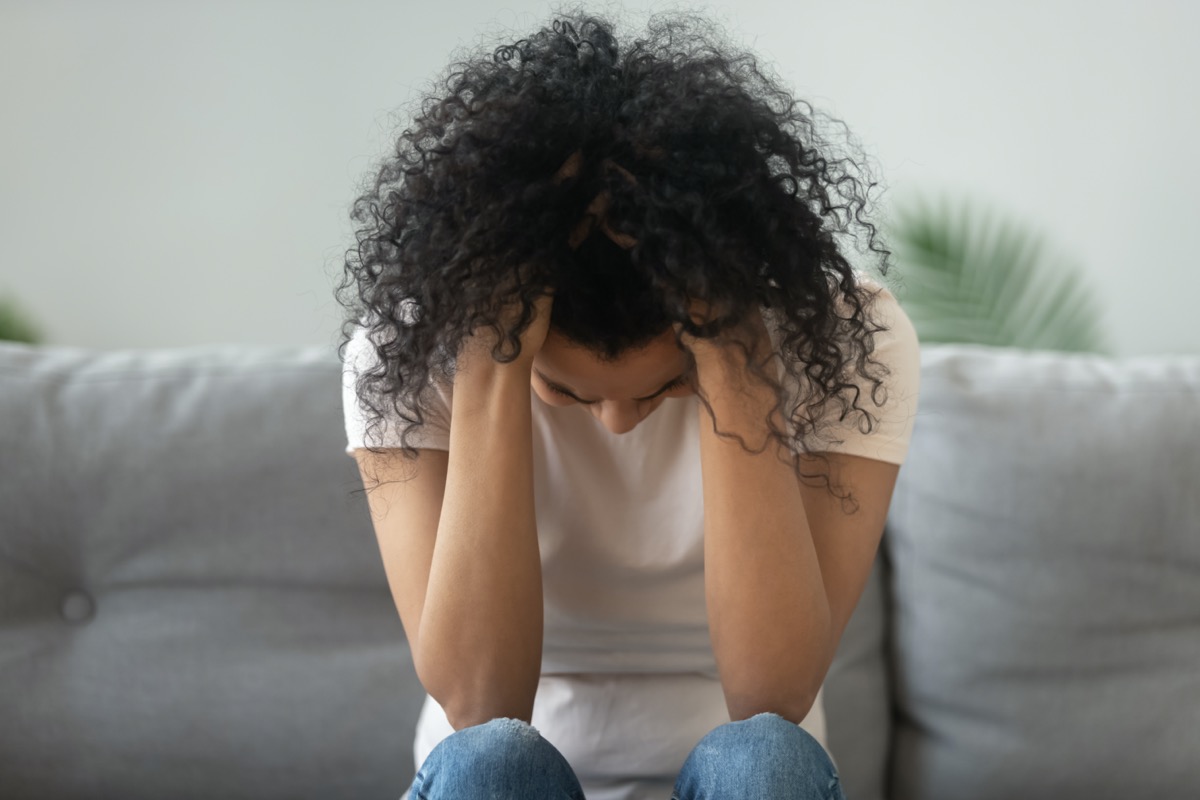People Over 60 Who Feel This May Be Shortening Their Lives By 5 Years

A good friend is difficult to find, but you may find that, as you grow older, they’re often more difficult to keep. In fact, it’s becoming increasingly clear that the average American adult boasts fewer friends and is lonelier than ever. According to the May 2021 American Perspectives Survey, just under half (49%) of American adults report only having three or fewer close friends. That’s a big leap in comparison to 1990, when only 27% of Americans said they had three or fewer close friends.
You may be wondering: “What’s the big deal, anyway?” While solitude certainly has its benefits in moderation, humans are social creatures by our very nature. As the saying goes, no man (or woman) is an island.
Now, a new international study published in the Journal of the American Geriatrics Society is further illustrating just how detrimental loneliness can be to one’s health and longevity, and it’s especially bad for people who are over 60. Keep reading to learn more about the study’s findings. And for some great ways to extend your life, make sure you’re avoiding these Ugly Everyday Habits Proven to Take Years Off Your Life, Says Science.
The Loneliness and Lifespan Connection

“We found that lonely older adults can expect to live a shorter life than their peers who don’t perceive themselves as lonely,” explains the study’s lead author, Assistant Professor Rahul Malhotra, Head of Research at Duke-NUS‘ Centre for Ageing Research and Education (CARE) in Singapore. “Furthermore, they pay a penalty for their shorter life by forfeiting potential years of good health.”
The scientists add that their work feels particularly important in the wake of the COVID-19 pandemic, a global event that left pretty much everyone on the planet feeling more lonely and isolated than ever.
“This study is timely because stay-at-home and physical distancing measures instituted since the start of the COVID-19 pandemic have only intensified concern for the mental and physical well-being of older persons,” says senior study co-author Research Project Professor Yasuhiko Saito, from the College of Economics, Nihon University. And for more things you should avoid for the sake of your lifespan, don’t miss The One Habit That Can Cut Your Life Short by 28 Years, Says Study.
The Impact of Loneliness After 60

According to the research, individuals around the age of 60 who consistently, or even just sometimes, feel lonely tend to live 3-5 years less on average than their similarly aged peers who never feel lonely. Meanwhile, individuals aged 70-80 years old who regularly perceive themselves as lonely can expect to live roughly 3-4 (70 year olds) and 2-3 years (80 year olds) less than their age-peers who very rarely feel lonely.
Loneliness Impacts Your Quality of Life, Too

Constantly feeling lonely and isolated as an older adult impacts more than just your lifespan. Researchers also investigated how much loneliness can affect your daily quality of life—and the results were telling. They report that loneliness holds major sway over two aspects of expected health quality: remaining years of life lived in good health, and remaining years of life in which one is capable of going about the “daily activities of living” without being limited. (For example, mundane household tasks like doing the dishes, bathing, or even just getting up from a seated position.)
The study concludes that adults around the age of 60 who consider themselves lonely “sometimes” or “most of the time” tend to enjoy 3-5 fewer years on average of functional living in comparison to their more social peers. In other words, if you’re lonely, it may cause your body to deteriorate at a faster pace. Lonely people around the age of 70 can expect an average of 2-4 fewer years of active living and those aged 80 experience an average of 1-3 fewer years of functional living.
But It Doesn’t Only Impact Older People

These findings make a compelling case that maintaining friendships and staying social well into old age is a major pillar of aging happily and healthily. “Besides being the year associated with the coronavirus disease, 2019 was also when the number of adults aged over 30 made up half the total global population for the first time in recorded history, marking the start of an increasingly aging world. In consequence, loneliness among seniors has become an issue of social and public health concern,” notes senior study author Associate Professor Angelique Chan, Executive Director of CARE. And for more ways to live longer, don’t miss these Small Decisions You’re Making That Can Take Years Off Your Life.








